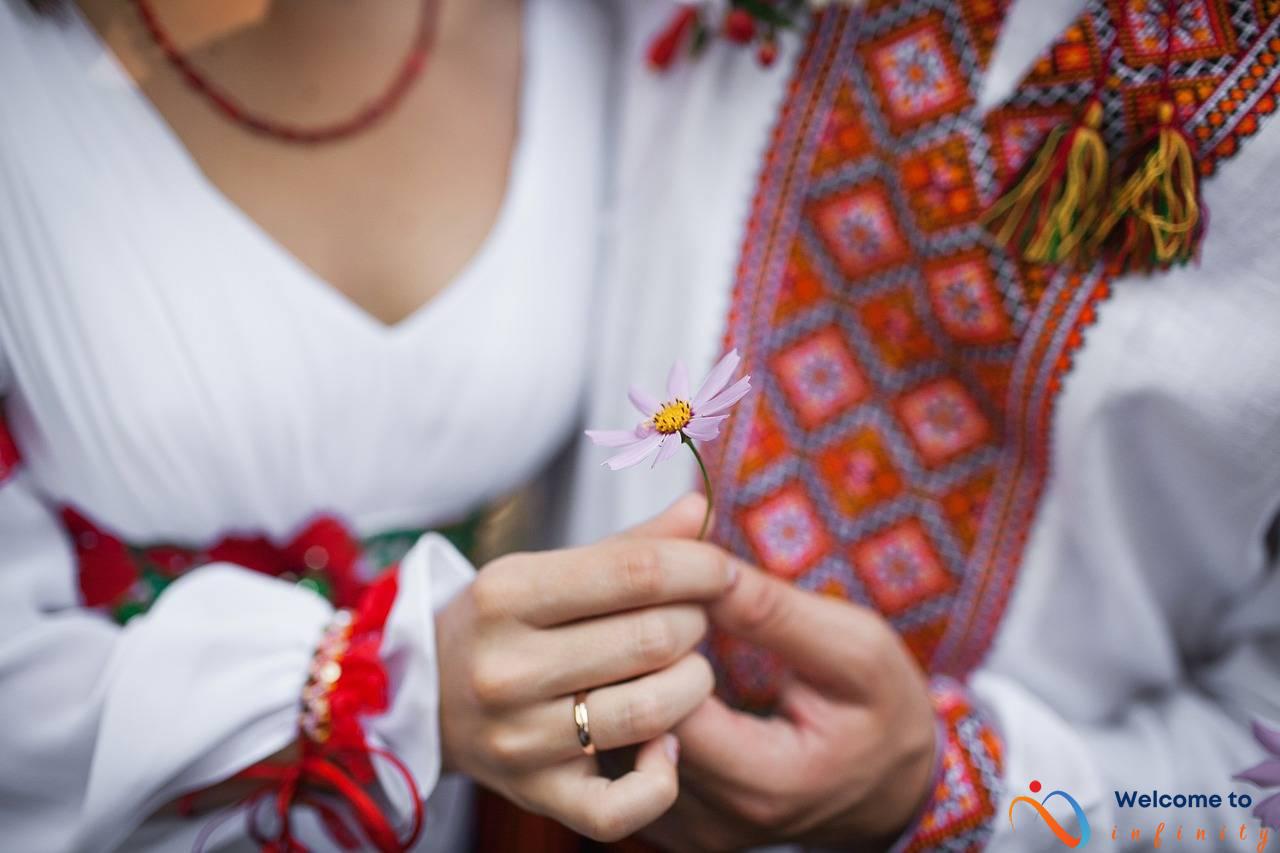A multicultural wedding can be a beautiful experience for couples who come from different cultural backgrounds. However, planning one can be challenging when cultural differences are not handled appropriately. It requires careful negotiation, sensitivity, and respect to ensure that all parties feel valued and included in this joyous occasion.
One of the key ways to handle this challenge can be to engage family members and involve them in the wedding planning process. Family involvement is crucial in multicultural weddings as it helps incorporate traditions and cultures from both sides. It also ensures that no one feels left behind and everyone has a role to play.
When it comes to involving family members in wedding planning, it's important to assign different tasks and responsibilities based on each person's interest and skills. For instance, some family members could take on the responsibility of researching cultural customs, while others could be in charge of choosing certain decorations. You can also hold meetings or virtual calls to discuss ideas and address any concerns that family members might have.
Effective communication is also critical when planning a multicultural wedding. When communicating with family members from different cultures, it's essential to listen to everyone's opinion, find common ground and compromise when necessary. The key is to be respectful of cultural differences and find ways to blend them together without imposing one culture on the other.
Ultimately, family involvement and effective communication are essential to planning a successful multicultural wedding. It helps create a deeper understanding and appreciation of different cultures, and provides an opportunity for the families to bond and celebrate the couple's unique love story.
The Importance of Family Involvement
When it comes to planning a multicultural wedding, involving family members from both sides is crucial to its success. Family involvement brings a wealth of knowledge and understanding to the table, helping to incorporate traditions and cultures from both sides of the family. This approach ensures that nobody is left behind, and it creates a celebration that is truly representative of the couple's different backgrounds.
Engaging family members in the wedding planning process can also help reduce potential conflicts and misunderstandings. Differences in culture and traditions can often create confusion and stress, but by involving the families, everyone can learn from each other and work together towards a common goal.
Moreover, family involvement in the wedding planning process can strengthen relationships and foster bonding between the different families. It provides an opportunity for everyone to come together and work towards a common goal, which can help bring families closer together in the long run.
Ultimately, family involvement in multicultural weddings is a significant aspect to consider when planning your special day. It not only helps to relieve the stress of planning an intercultural wedding but also creates a beautiful, unique, and memorable celebration that everyone can enjoy together.
How to Involve Family in Wedding Planning
Planning a multicultural wedding can be challenging, but involving family members can make it a lot easier and enjoyable for everyone. Here are some ways to involve your family members in your wedding planning:
- Assign tasks and responsibilities: Assigning different tasks and responsibilities to family members can help them feel included and give them a sense of ownership in the wedding planning process. For example, you can assign someone to research and suggest different cultural customs that can be incorporated into the wedding ceremony or reception.
- Hold meetings or virtual calls: Regular meetings or virtual calls with family members can be a great way to discuss ideas and address any concerns or issues that may arise during wedding planning. This can also be an opportunity for family members to share their own ideas and suggestions.
- Create a wedding committee: Forming a wedding committee consisting of family members can provide a great platform for collaborative decision-making. The committee can be responsible for different aspects of the wedding planning, and everyone can work together to create a memorable and inclusive wedding.
By involving family members in wedding planning, you can ensure that everyone feels included, and no one's traditions or customs are overlooked. It can also be a great way to learn more about each other's culture and traditions and create a wedding that reflects both the couple's backgrounds and shared values.
Tips for Effective Communication
Tips for Effective Communication
Effective communication is essential when planning a multicultural wedding, especially in multigenerational and multicultural families. The key to effective communication is to listen to everyone's opinions and find common ground. When dealing with different cultural backgrounds, take the time to understand each other's beliefs and values. Here are some tips for communicating effectively during wedding planning:
- Listen: Listen actively to each other's opinions and try to see things from their perspective. Make sure everyone's voice is heard and valued.
- Find Common Ground: Look for areas where both families can agree and work together towards a common goal.
- Compromise: Be willing to compromise at times, especially when it comes to cultural traditions and beliefs. Seek a middle ground that honors both cultures and families.
- Be Sensitive: Be sensitive to cultural differences and respect each other's beliefs. Avoid imposing one culture on the other and instead, find ways to blend two cultures together harmoniously.
- Communicate Regularly: Hold regular family meetings or virtual calls to discuss ideas and address concerns. This will ensure that everyone stays up-to-date and feels included in the wedding planning process.
By following these tips, families can communicate effectively during and after wedding planning. working together to create a unique and memorable multicultural wedding will help bring families closer together and create a lasting bond.
Respecting Cultural Differences
When planning a multicultural wedding, it is important to remember that each culture is different and deserves respect. It is imperative to be sensitive to cultural differences and respect each other's beliefs. Avoid imposing one culture on the other, and instead, find ways to blend them together.
One way to respect cultural differences is to research each culture's customs and traditions and find ways to incorporate them into the wedding planning. This can be done by including elements from both cultures in the ceremony and reception. For example, the couple can consider selecting a color scheme and decorations that complement both cultures.
In addition, it is important to listen to the families' opinions and concerns and find common ground that is acceptable to both parties. It is crucial to communicate with each other about expectations and desires for the wedding, and be willing to compromise when necessary.
Ultimately, respecting cultural differences can lead to a meaningful wedding that celebrates the couple's unique love story. By taking the time to blend cultures and traditions, the couple can create a memorable and inclusive celebration that everyone can enjoy and appreciate.
Creating New Traditions
One way to make a multicultural wedding truly special and memorable is by creating new traditions that blend both cultures. This could involve incorporating unique customs, such as a traditional dance, song or attire, into the ceremony or reception. It could also involve finding creative ways to incorporate both cultures into the decor, food, or music.
For example, the couple could have a fusion menu that includes dishes from both cultures or create a playlist that combines traditional music from both cultures. Another idea is to have a unity ceremony that reflects both cultures' traditions, such as combining sand from both cultures for a sand ceremony.
When creating new traditions, it's important to involve both families and ensure that everyone's interests and beliefs are considered. This is where effective communication comes in handy, as it helps to address any concerns or conflicting ideas. By coming up with unique ideas that reflect the couple's shared values, the families can bond together and create lasting memories of the wedding.
The benefits of Family Involvement
Family involvement in multicultural wedding planning not only ensures a successful event, but it also provides an opportunity for families to bond and develop a deeper understanding and appreciation of different cultures. By working together to incorporate traditions and customs from both sides, families can create a unique and memorable wedding that reflects the couple's shared values.
Not only does family involvement ensure cultural inclusivity, but it also allows for a smooth and efficient planning process. Different family members can take on various responsibilities such as researching traditional clothing, music, and food from each culture, or finding vendors that specialize in multicultural weddings. This can lessen the burden on the couple and also provide an opportunity for family members to contribute and feel valued.
Moreover, involving family members in this process can help reduce conflicts and misunderstandings. By openly discussing and addressing any concerns or differences, everyone can find common ground and work towards creating a celebration that honors both cultures. This can lead to a more cohesive and harmonious event.
In conclusion, the benefits of family involvement in multicultural wedding planning are numerous. By working together and incorporating different cultural beliefs and traditions, families can not only create a beautiful and unique wedding but also strengthen their bonds and understanding of different cultures.
The Role of Wedding Planners and Vendors
Planning a multicultural wedding can be overwhelming, and that's where wedding planners and vendors come in. Wedding planners and vendors who specialize in multicultural weddings can provide valuable guidance and expertise in navigating cultural differences while planning the event.
These experts can help the couple and their families to find common ground and respect cultural differences. They can also provide input on traditional ceremonies, rituals, and decor from each culture to incorporate in the wedding ceremony and reception.
When looking for a wedding planner or vendor, it's essential to consider their cultural expertise and sensitivity. They should have experience working with couples from different cultures and be able to communicate effectively with the families involved.
Additionally, wedding planners and vendors can provide creative ideas for a unique and meaningful ceremony and reception that honors both cultures. They can suggest ways to blend the customs into the wedding and create new traditions that reflect the couple's shared values.
In summary, hiring wedding planners and vendors with cultural expertise and sensitivity is crucial for planning a successful multicultural wedding. They can handle the intercultural negotiations and ensure that everyone's traditions are respected while creating a memorable and beautiful event.
Conclusion
Planning a multicultural wedding can be a daunting task, but involving family members in the planning process can make it easier. Family involvement and effective communication are the keys to planning a successful multicultural wedding. By incorporating traditions and customs from both cultures, new traditions can be created that reflect the couple's unique love story.
It is important to respect cultural differences and find ways to celebrate both cultures without imposing one over the other. Creating new traditions that blend both cultures is a great way to do this and can make the wedding even more memorable. Family involvement in planning these new traditions can help bring families together and create a deeper understanding and appreciation of different cultures.
Effective communication is essential when planning a multicultural wedding. Holding meetings or virtual calls to discuss ideas and concerns can ensure that everyone's opinions are heard and considered. Finding common ground and compromising when necessary can help avoid conflicts and create a harmonious planning process.
Hiring a wedding planner or vendor with expertise in multicultural weddings can also be helpful in navigating cultural differences and providing guidance and expertise in planning the event. By working together with family members and professionals, a successful and beautiful multicultural wedding can be achieved.
Overall, family involvement and effective communication are the foundation of planning a successful multicultural wedding. By celebrating and respecting different cultures, new traditions can be created that reflect the couple's unique love story and bring families together.












